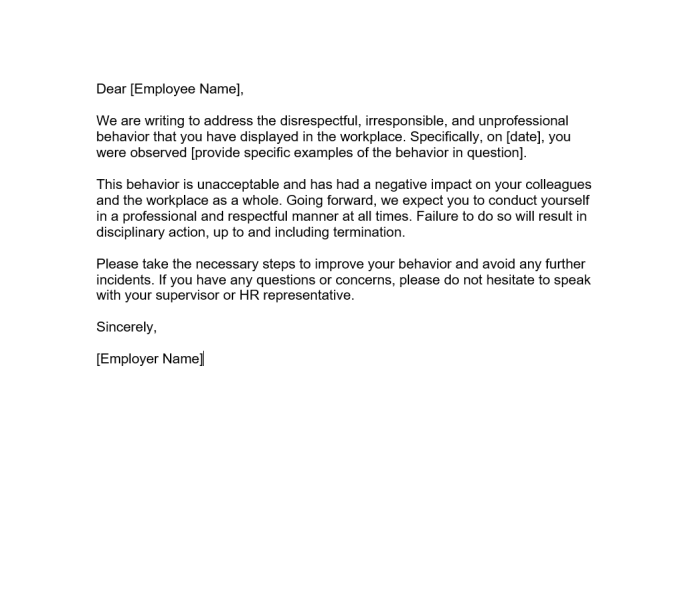It is unethical to report the wrongdoing of a coworker: this notion raises profound ethical and practical considerations that impact workplaces and individuals alike. Navigating the complexities of such situations requires a nuanced understanding of ethical obligations, company policies, legal implications, and personal factors.
The ethical implications of reporting wrongdoing are multifaceted. On the one hand, it can be seen as a duty to uphold organizational integrity and protect the public interest. On the other hand, concerns about retaliation, damage to personal relationships, and the potential for unintended consequences may weigh heavily on the decision.
Ethical Considerations: It Is Unethical To Report The Wrongdoing Of A Coworker

Reporting a coworker’s wrongdoing presents ethical implications that require careful consideration. The decision of whether or not to report involves balancing potential consequences and adherence to ethical principles.
Ethical Implications of Reporting
- Duty to the Organization:Employees have a duty to protect the interests of their organization by reporting wrongdoing that could harm the company or its stakeholders.
- Duty to Society:Individuals have a moral obligation to report illegal or unethical behavior that could impact the broader community.
- Duty to the Coworker:While reporting wrongdoing is generally considered ethical, it may also raise concerns about the well-being and privacy of the accused coworker.
Consequences of Reporting and Not Reporting, It is unethical to report the wrongdoing of a coworker
- Consequences of Reporting:Reporting wrongdoing may lead to retaliation, negative workplace relationships, or legal challenges.
- Consequences of Not Reporting:Failing to report wrongdoing could allow the behavior to continue, potentially causing further harm to the organization or individuals.
Situations Where Reporting is Clearly Unethical
- Reporting false or malicious accusations.
- Reporting personal matters that do not constitute wrongdoing.
- Reporting out of personal vendetta or retaliation.
Company Policies and Procedures

Many companies have established policies and procedures for reporting wrongdoing. These policies can influence the decision of whether or not to report by providing guidelines and protections.
Company Policies
- Mandatory Reporting:Some companies require employees to report all known or suspected wrongdoing.
- Protected Reporting:Companies may offer protection for employees who report wrongdoing, such as confidentiality and immunity from retaliation.
- Anonymous Reporting:Some policies allow employees to report wrongdoing anonymously, providing protection from retaliation.
Influence on Decision-Making
Company policies can influence the decision to report wrongdoing by:
- Clarifying the organization’s expectations and values.
- Providing guidance on the appropriate channels for reporting.
- Offering protection and support for employees who report wrongdoing.
Legal Implications

Reporting a coworker’s wrongdoing may have legal implications, including potential protections and consequences.
Whistleblower Protections
- Federal and State Laws:Many jurisdictions have laws that protect employees from retaliation for reporting wrongdoing.
- Protected Activities:Whistleblower laws typically protect employees who report illegal or unethical behavior.
- Limitations:Whistleblower protections may not apply in all cases, such as when the report is made to an external party or when the wrongdoing is not considered a protected activity.
Legal Consequences
- False or Malicious Accusations:Making false or malicious accusations of wrongdoing can result in legal liability.
- Defamation:Reporting wrongdoing without a reasonable basis could constitute defamation and lead to legal action.
- Criminal Charges:In some cases, reporting wrongdoing may trigger criminal investigations and charges.
User Queries
What are the ethical implications of reporting coworker wrongdoing?
Reporting coworker wrongdoing can raise ethical concerns about loyalty, confidentiality, and potential retaliation.
What are the potential consequences of reporting and not reporting wrongdoing?
Reporting wrongdoing can lead to positive outcomes such as organizational improvements and legal protections. Not reporting wrongdoing can perpetuate unethical practices and create a culture of silence.
What are some examples of situations where reporting wrongdoing is clearly unethical?
Reporting wrongdoing is unethical when it is done with malicious intent, to gain personal advantage, or when it violates legal or ethical obligations.